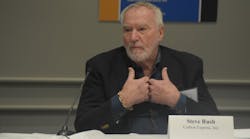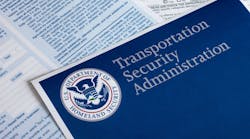The United States Court of Appeals for the Seventh Circuit on November 1 denied the Owner-Operator Independent Drivers Association’s (OOIDA) challenge to the electronic logging device (ELD) rule. The ruling came faster than expected, and the appellate court completely rejected OOIDA’s arguments.
OOIDA sued the Federal Motor Carrier Safety Administration (FMCSA) for promulgating the rule, making five challenges:
• ELDs do not record all driver status information completely automatically, therefore violating Congress’ instruction that ELDs be “automatic;”
• The rule failed to protect drivers sufficiently from harassment;
• The rule’s costs outweighed its benefits;
• The rule failed to protect the confidentiality of drivers’ personal data collected by ELDs; and
• The rule was an unconstitutional search and seizure under the Fourth Amendment.
“All in all, it’s a fair, sober, and expected response from the Seventh Circuit,” said Boyd Stephenson, National Tank Truck Carriers senior vice-president. “The court dealt with each of OOIDA’s challenges in turn and found them all to be baseless. The ELD rule will not achieve perfect HOS compliance, but it will significantly increase it. Perhaps most importantly, the US Congress told FMCSA to implement the rule, and they did so. FMCSA followed Congress’ instructions where given specific instructions and made reasonable decisions when filling in the gaps to transform legislation into regulation.”
Accordingly, FMCSA’s final ELD rule will take effect as scheduled. Trucks must be equipped with ELDs by December 18, 2017. However, vehicles that were equipped with compliant Automatic Onboard Recorders on December 16, 2015 receive a two year extension to this deadline.
The final ELD rule was published in late 2015 and requires that all trucks be equipped with electronic hours-of-service logging devices over a multi-year period. National Tank Truck Carriers has been a long-time supporter of the ELD rule but has proposed changes from the originally proposed version, according to Stephenson.








